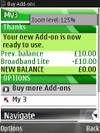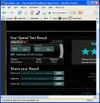An eMail arriving two minutes before midnight on a Saturday evening on my mobile phone as a response to a request I had sent a couple of hours earlier made me think of what has become of time, place and cables in communication.
Well, they are all gone. In the old days, not so long ago, a fax was the fastest way one could transmit someone a document. But a fax machine was only observed at business hours, one had to be at a certain place and it was attached to that place by a cable. If the person was not next to the fax machine, chances were good an answer took at least a day or two or even longer, especially when sent at an odd time (such as a Saturday afternoon). Fast forward to today, and communication is no longer limited by time, place or cables. Messages are sent via email from anywhere to anywhere on the planet within seconds, independent from time and also from place.
When I received that email close to midnight, I first thought a mobile email device played a role in the fast response (think Blackberry, Nokia N- and Eseries, etc.) . The header of the email, however, revealed that it was sent from a PC. But not from Northern Europe, as I assumed at first, but from a location in the United States. Another important lesson here: A message is no longer sent to a device sitting at a certain place but to a person and that person can get his/her messages no matter of his/her current location. As long as there is connectivity, that message finds its way.
We have absorbed this new way of communicating pretty quickly it almost seems silly to talk about it since it has become so normal. But once every now and then I stumble upon a company that still wants to do business “the old way”. Pretty difficult in my case, since I don’t carry a fax machine around…




